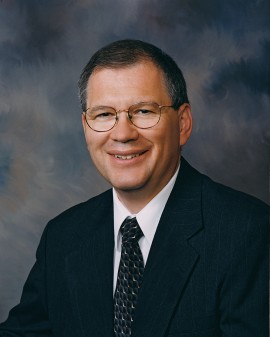 This issue highlights ways Hesston College and our alumni are working to build more sustainable patterns of using the natural resources entrusted to us. Sustainability, buying local and renewable energy are hot topics as businesses, nonprofits and households seek to live in more economical and healthy ways.
This issue highlights ways Hesston College and our alumni are working to build more sustainable patterns of using the natural resources entrusted to us. Sustainability, buying local and renewable energy are hot topics as businesses, nonprofits and households seek to live in more economical and healthy ways.
For Christians, these topics should not be new, or hot or current. We are created in God’s image and charged with caring for the earth that God created. Caring for our health and the natural world is a part of our commitment to Christ.
There are many ways the college has embraced these concepts in the past few years.
- Our First-Year Experience seminar emphasized sustainability this past year with a common read, special projects and speakers including Wilbur Bontrager ’73, CEO of Jayco Inc. (Middlebury, Ind.), a recreational vehicle manufacturer with a sustainability goal to be landfill-free by 2015, and Jon Helmuth ’91, president of Genesis Products, Inc. (Elkhart, Ind.), a leading wood component supplier to recreational vehicle, housing and industrial markets that employs various methods for recycling unused material.
- The “10-Day Give” project at the end of the 2011 and 2012 academic years cut in half the amount of trash taken to the landfill as students moved out of the dorms.
- At the 2011-12 faculty-staff retreat, we ate food grown locally, encouraged people to walk, used reusable items and learned about energy use and conservation. At the end of the day, we had accumulated less than one kitchen-size bag of trash.
- Our Board meetings are now paperless, resulting in savings equivalent to about a three-foot high stack of paper each year. Many classes and other groups on campus have dramatically cut paper use as well.
- Thanks to the lead of the Campus Facilities department over the past two years, we have doubled our recycling and cut our landfill use in half.
- Lighting retrofits over the last five years have cut electricity consumption while keeping lighting output constant.
- The renovation work in Erb Hall has improved the living experience for students and has made it a much more energy efficient building.
- Changes in the kitchen, such as going trayless for meals and adding a relay on the steam boiler, have resulted in decreased demand for water and natural gas.
- The Advanced Physics class, taught by Nelson Kilmer, does energy management projects each year. Projects have included a solar-powered golf cart, solar-powered lighting in Charles Hall, solar cookers and an electric bicycle with a solar charging station.
And we have a long way to go. It seems that each project leads to another idea, and there are many more ways we hope to reuse, recycle, save energy and live more sustainably. I am encouraged to see our faculty, staff and students all engaged with this initiative. We are stewards of God’s creation, and we treat that responsibility as a sacred trust.

